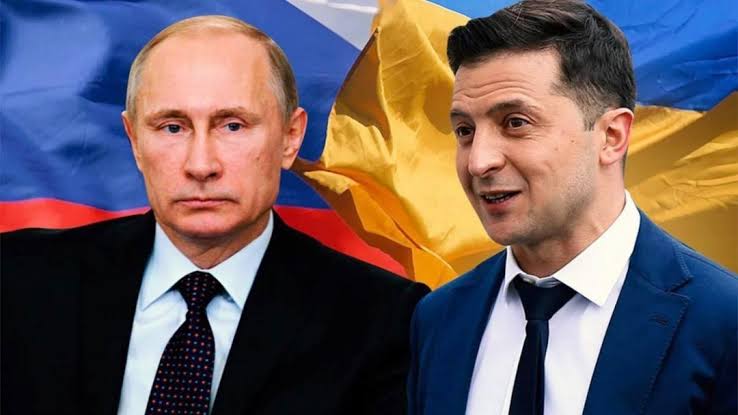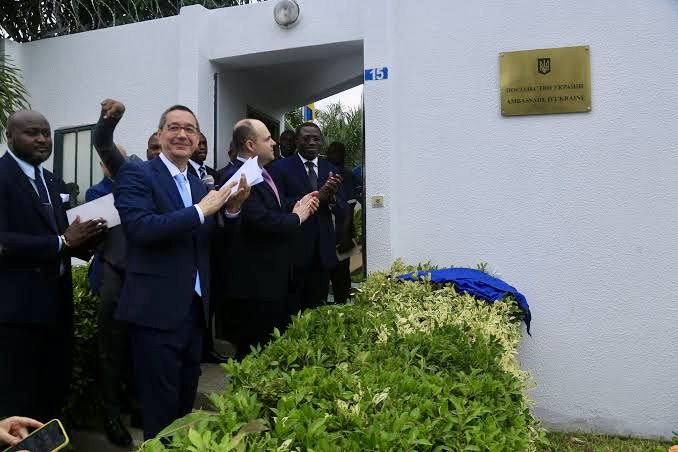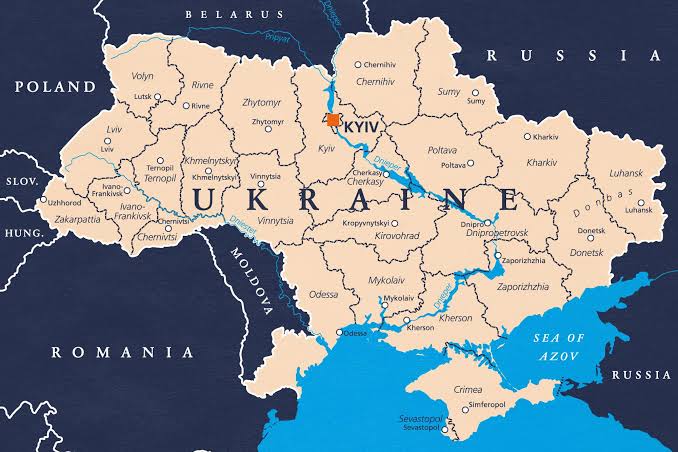
Faith Nyasuguta
Ukraine inaugurated its embassy in Ivory Coast, following the recent opening of its embassy in the Democratic Republic of Congo. Deputy Foreign Minister Maksym Subkh hailed this as a significant step in strengthening Ukraine’s ties with Africa, emphasizing President Volodymyr Zelensky’s commitment to expanding diplomatic relations on the continent.
Subkh, speaking at the embassy opening in Kinshasa, highlighted Zelensky’s directive to increase Ukraine’s diplomatic presence in Africa. The opening of additional embassies in countries like Ghana, Mozambique, Botswana, and Rwanda is part of this strategic initiative to deepen partnerships across Africa.

In Ivory Coast, Subkh emphasized the global impact of Ukraine’s conflict with Russia, particularly on food prices, and expressed appreciation for Ivory Coast’s support for Ukraine’s sovereignty and territorial integrity.
“This war can seem very far away. But the catastrophic increase in food prices has already impacted the lives of millions of African families,” Subkh said at the opening in the diplomatic quarter of Ivory Coast’s economic capital.
He acknowledged Ivory Coast’s backing of key United Nations resolutions condemning Russia’s invasion, emphasizing the significance of international solidarity in addressing conflicts and upholding principles of sovereignty.
The inauguration of Ukraine’s embassy in Ivory Coast signifies a new chapter in bilateral relations between the two countries and reflects Ukraine’s broader commitment to engaging with African nations.
It represents a proactive approach by Ukraine to expand its diplomatic footprint and foster mutually beneficial cooperation with African partners.
Since Russia’s initial invasion of Ukraine in 2014, Moscow has significantly expanded its presence in Africa, aiming to reshape the international order to its advantage. The Kremlin’s efforts include seeking semi-permanent army bases in Sub-Saharan Africa, particularly targeting the Sahel region, where influence operations have intensified in countries like the Central African Republic, Burkina Faso, Mali, Niger, and Chad.

Concurrently, Moscow plans to establish naval and air bases in Libya and the Horn of Africa. The Kremlin has also revived the operations of the Wagner Group on the continent as a means to project power, especially as its conventional army faces challenges in Ukraine.
Recent announcements, such as the preparation for a new Russian military base in the Central African Republic, underscore Moscow’s ambitions to establish a network of military bases across Sub-Saharan Africa.
Russian officials have engaged in regular meetings with African counterparts to strengthen diplomatic ties, including recent discussions between Russian Foreign Minister Sergei Lavrov and officials from countries like Mali.
These military agreements entail Russian troop deployments to the Sahel, further solidifying Moscow’s influence in the region. The rebranding of Wagner Group operations as the African Corps reflects Russia’s commitment to protecting its investments in Africa, particularly in the mining sector.
Additionally, Russian forces aim to bolster authoritarian regimes and combat Islamist rebels in various African countries, effectively challenging existing regional security organizations and competing with Western influence.
Despite Western concerns and Russia’s diversion of resources to Africa amidst the conflict in Ukraine, Moscow persists in its campaign on the continent. As Ukraine and other actors combat Russian influence in Africa, Moscow’s grip on the region is expected to strengthen, driven by its strategic focus on resource-rich African countries.
RELATED:




